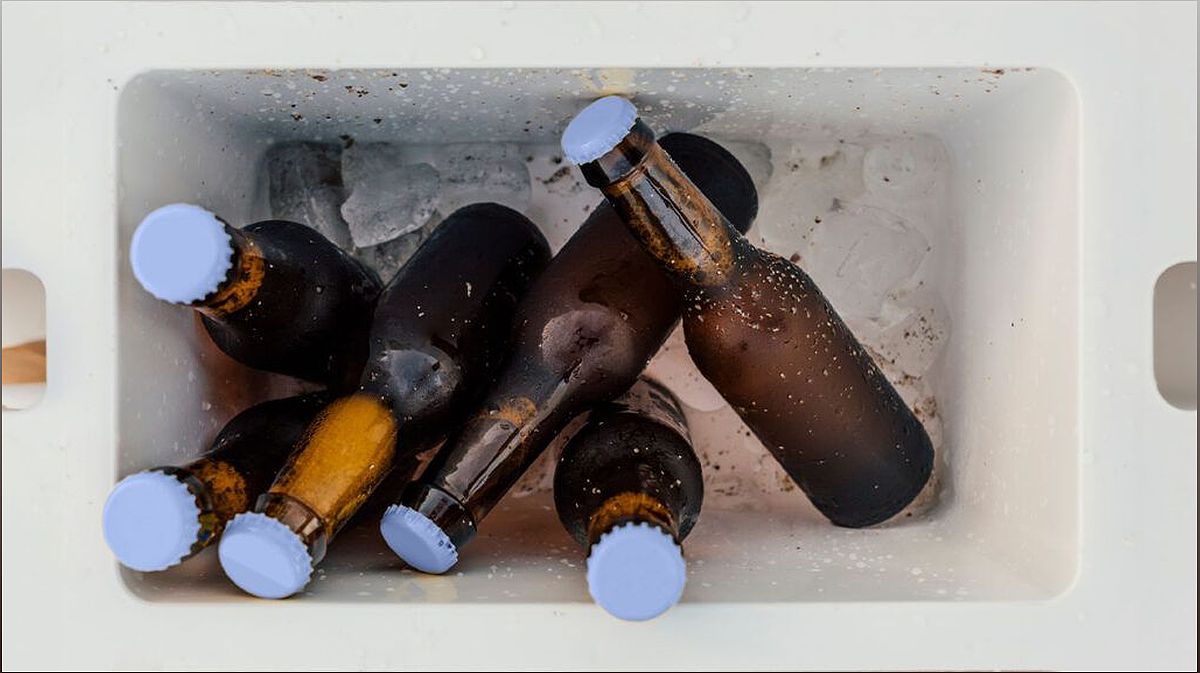Binge-drinking can have serious consequences for liver health. A recent study conducted by the University College London reveals that a single night of excessive alcohol consumption is more likely to cause liver disease than moderate drinking spread across the week. By analyzing data from over 300,000 active alcoholic drinkers in the United Kingdom, the study found that the pattern of alcohol intake is a better indicator of liver disease risk than the volume alone. Additionally, the study highlights the increased risk of developing alcohol-related cirrhosis (ARC) for individuals who engage in heavy binge-drinking, have a genetic predisposition, or suffer from type-2 diabetes. These findings emphasize the importance of understanding the impact of drinking patterns on liver health and the need for responsible alcohol consumption.
The Impact of Binge-Drinking on Liver Health
Binge-drinking, defined as excessive alcohol consumption in a short period, can have detrimental effects on liver health. It is important to understand the impact of this drinking pattern on the risk of developing alcohol-related cirrhosis (ARC), a stage of liver disease characterized by significant scarring and impaired liver function.

A recent study conducted by the University College London revealed that a single night of binge-drinking is more likely to cause liver disease than consuming alcohol in moderation spread across the week. This finding highlights the importance of considering the pattern of alcohol intake rather than just the volume consumed when assessing the risk of developing ARC.

Individuals who engage in heavy binge-drinking, have a genetic predisposition, or suffer from type-2 diabetes are at an increased risk of developing ARC. The study found that those who engage in binge-drinking while also having a genetic predisposition are six times more likely to develop ARC.
It is crucial to be aware of the potential consequences of binge-drinking on liver health and to promote responsible alcohol consumption to protect the liver from harm.
The Role of Drinking Patterns in Liver Disease Risk
While the volume of alcohol consumed is often considered a key factor in assessing liver disease risk, the pattern of drinking plays a crucial role as well. The University College London study found that the pattern of alcohol intake is a better indicator of liver disease risk than volume alone.

Individuals who engage in heavy binge-drinking, even if it is infrequent, are at a higher risk of developing ARC compared to those who consume alcohol in moderation spread across the week. This highlights the importance of spreading alcohol consumption over time rather than consuming large amounts in a single session.

Furthermore, the study revealed that individuals with a genetic predisposition to liver disease are more susceptible to the harmful effects of binge-drinking. Understanding one’s genetic risk factors can help individuals make informed decisions about their alcohol consumption.
Considering the pattern of alcohol intake and being mindful of the potential risks can help individuals protect their liver health and reduce the likelihood of developing ARC.
The Link Between Binge-Drinking, Type-2 Diabetes, and ARC
The University College London study also found that individuals who have type-2 diabetes and engage in binge-drinking are at a higher risk of developing ARC. The combination of these two factors significantly increases the likelihood of liver damage.
Type-2 diabetes is a metabolic disorder that affects the body’s ability to regulate blood sugar levels. Excessive alcohol consumption, especially in the form of binge-drinking, can further impair the body’s glucose metabolism and increase the risk of liver disease.
It is crucial for individuals with type-2 diabetes to be aware of the potential risks associated with binge-drinking and to manage their alcohol consumption accordingly. Seeking guidance from healthcare professionals can help individuals make informed decisions about their alcohol intake and protect their liver health.
The Importance of Responsible Alcohol Consumption
The findings of the University College London study emphasize the importance of responsible alcohol consumption for maintaining liver health. Excessive alcohol consumption, particularly in the form of binge-drinking, can have serious consequences for the liver.
It is essential to spread alcohol consumption over time and avoid excessive drinking in a single session. This allows the liver to process alcohol more effectively and reduces the risk of developing ARC.
Additionally, understanding one’s genetic predisposition to liver disease and managing other risk factors, such as type-2 diabetes, can help individuals make informed decisions about their alcohol intake and protect their liver health.
By promoting responsible alcohol consumption and raising awareness about the potential risks, we can work towards reducing the prevalence of alcohol-related liver diseases and ensuring better liver health for individuals.